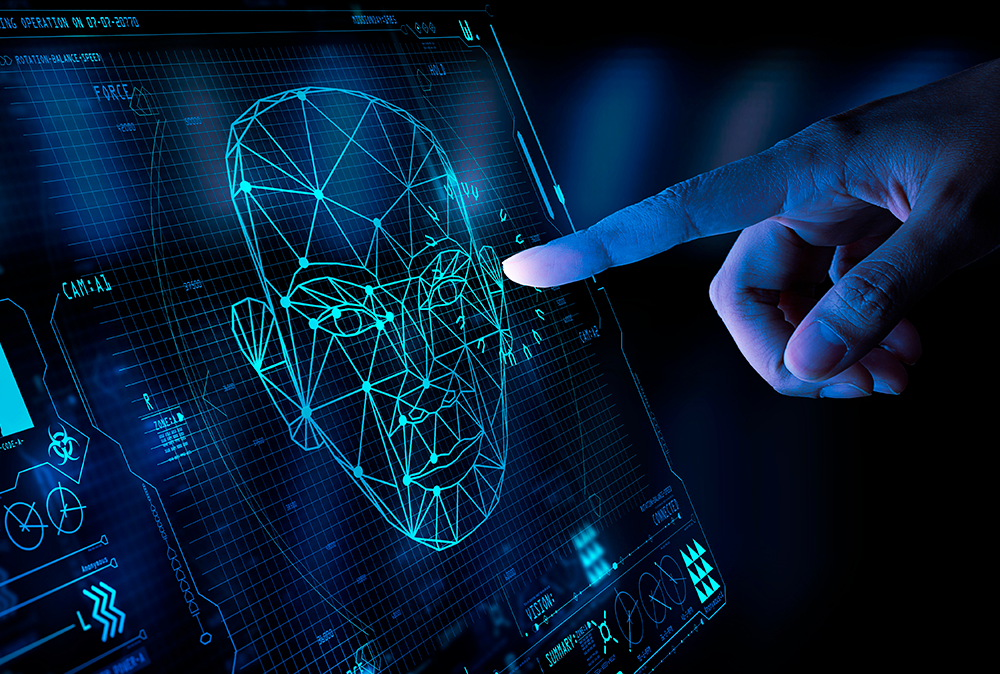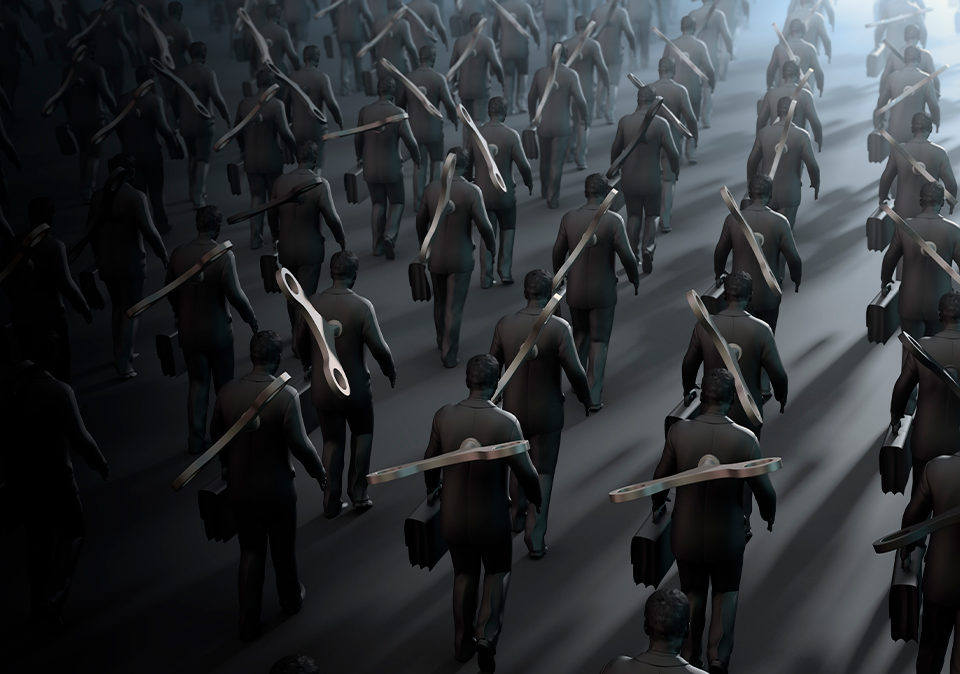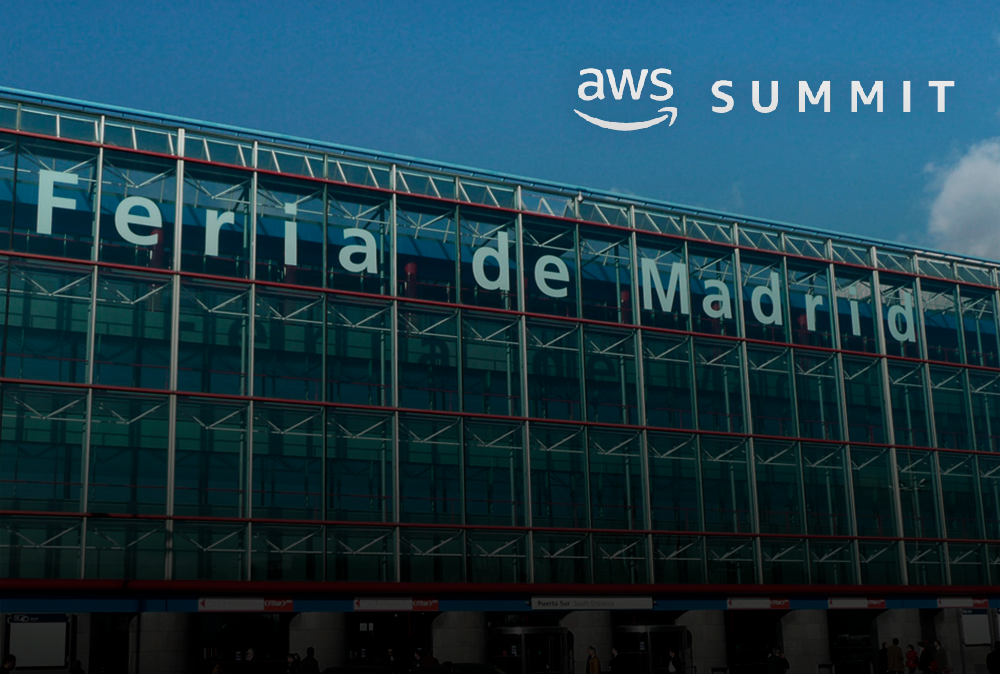
AWS Summit Madrid 2022. How slave technological companies work
25 April, 2022
Consequences of the COVID-19 tyranny: Turmoil on children’s mental health
12 May, 2022
27 April, 2022
It’s surprising that in just a few years we’ve gotten used to sending and oversharing our identity documents with endless companies, not stopping to think about all its implications. Opening a bank account, contracting a utility or telephone operator, insurance... All of them want a copy of our ID card or passport, a selfie, some even request we record ourselves or provide biometric data. In London, for example, the German school asks for authorization to collect fingerprint biometrics from children in the kindergarten. An attack on the most fundamental privacy of our minors, increasingly enslaved by a system that does not respect their fundamental rights.
For various reasons, such as the bioterrorist coronavirus attack in 2020 perpetrated by the globalist elites on the rest of humanity, the concept of privacy has relaxed to unsuspected limits. Our lack of concern when hitting the "send" button is evident. We don’t stop and think what’s at stake when we consent a company to store our data, nothing less than attributes related to our identity: who we are.
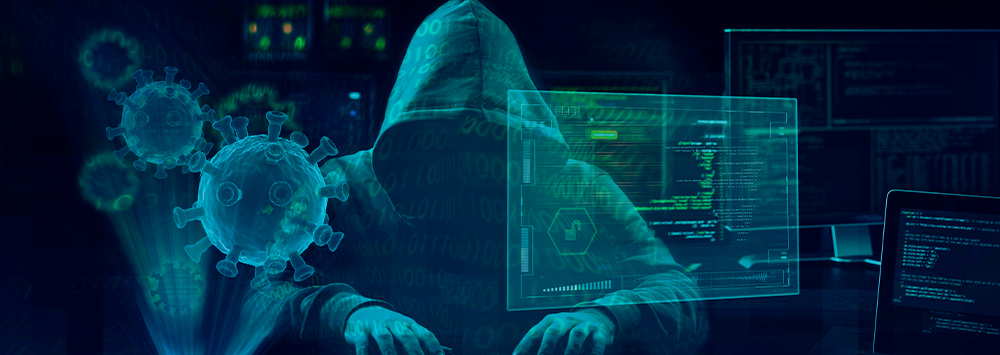
The massive amount of information we share daily is not free of danger. It is exposed to a possible breach of data that ends up smuggled on the dark web and used by hackers, scenarios induced by social pressure measures applied with the hazardous excuse of a flu-like virus. On the one hand, this unusual situation is accelerating the digital transformation, but on the other, it’s forcing corporations to multiply their security efforts while forcing users to carry out digital processes instead of analogue or face-to-face ones.
As a result of all these threats a concern arises, not only to protect our digital identity but to have real and effective control over it, far from the mechanisms of large companies. The "secure" password you create to open an account in any online service does not belong to you. It is in the hands of a globalist corporation that, in addition to taking advantage of any circumstance to resell your information, is susceptible to a computer attack, as we have already seen. It is estimated that each individual has between 130 and 200 services associated to their email, as specified by Fredrik Nilsson, CEO of Binaria Technologies and digital identity expert, indicating a countless number of potential leaks and threats to our privacy.
This concern crystallizes in relatively new movements such as the Self Sovereign Identity (SSI), which aims to empower the individual to generate, control, store and share his or her identity credentials without mediators.
Freedom of choice is subject to the decisions of the richest families and their investment funds, gathered around the steamroller that is the Davos Forum. It’s no coincidence that technology companies such as Apple and Google have worked hard to establish proactive policies to anticipate our needs and make us believe that we are deciding on the new functionalities we adopt. Greedy globalist control has multiple implications and the shadow of directing initiatives that empower the people is too long. So, the Managed Self Identity (or MSI) is born with major factory defects. Do you think that if the content of your wallet does not interest them because you are a conflictive citizen, they are not going to disable your mobile, cut off your access data or freeze your savings in your bank? You will not be able to escape because your electric car will not work when you connect to it because they will have immobilized it, and you will not be able to express your disagreement or defend yourself because your digital identity will be in technological elements that will not allow its use.
Self-managed digital identities are based on the download of apps backed by governments or giant globalist corporations. Their use is carried out on hardware devices, operating systems and other technological elements owned by the elites. We will never achieve real sovereignty if we allow our identity to circulate thru technological elements owned by those who concentrate power.
We could believe that if we leave behind the passwords system controlled by technological giants, we are escaping from their constant marketing and manipulation. However, we need initiative and at the same time respect, responsibility, and awareness of the value of our data, and not pretend that our identity protects itself or depends on the paternalism of companies or governments. Moreover, what is the point of us storing and creating control over our identity attributes, if every piece of technology we use to do so actually belongs to a very small number of corporations?
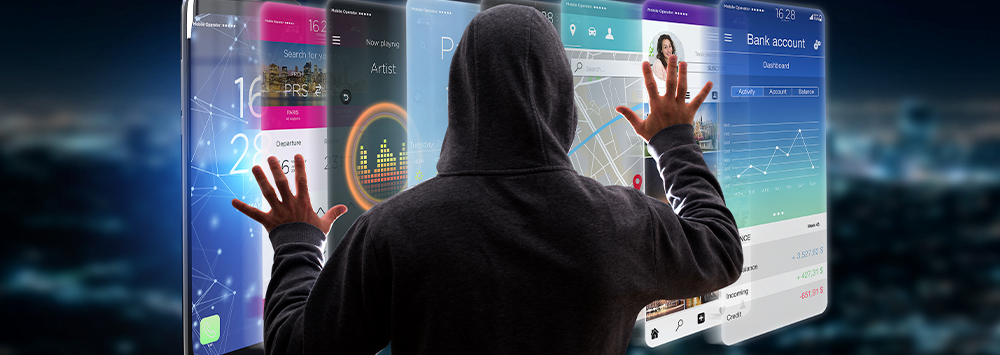
We also start from the premise that access to technology is very unequal depending on where we are. Our origin will determine whether we have a cell phone or an Internet connection, obvious elements in our "first-world" area, but a lack in many territories that translates into a lack of opportunities, disadvantages in learning and limited capacity for innovation.
To protect identities and achieve true freedom, understood as the self-sufficient capacity to make decisions and control “one self”, we must democratize the ownership of technology in all aspects. We must strive to make it accessible and adaptable to different realities, so that anyone can understand and use it, and thus we all become owners. Many countries have made a giant leap forward in the digital literacy of their population by law. Ecuador, for example, reduced the digital illiteracy gap by 18 points in a very short time, all thanks to its democratization policies carried out around 2014. These policies were based on the provision of connection and computer equipment to educational centers, the installation of sufficient mobile networks to reach 96% of the population through the Internet, and the inauguration of over 700 so-called "infocenters", so that rural and marginal urban areas could also access the network. It is worth noting that from 2006 to 2013, the country multiplied by 10 the number of kilometers of fiber optics, in what was a powerful bet by the Government to universalize technology.
When the minimum requirements have been met, companies, educators and legislators must work to make technology a real tool for development. It isn’t just a matter of forcing us to use a computer or cell phone in a scenario like the COVID-19 attack and virtualizing what used to be face-to-face, but of educating, understanding when a hybrid environment is necessary and educating us in critical perspectives about who decides on our relationship with the digital world. This would be the beginning of real independence.
This lack of critique has led us to accept the disappearance of cash, despite the reluctance of many social sectors to make widespread use of credit cards. The reasoning for such a turn of events is none other than the danger of infection of a virus through banknotes and coins (or hands, railings, etc.) whose lethality is similar to that of the seasonal flu. Separate us, stop touching each other, to control us. Not to mention that, although many studies have already shown that the danger of surface contagion is a fantasy, the change in the system is already in place. Taking away our cash is a form of manipulation that is linked to other forms of reducing human rights. In the United States, the debate has traditionally revolved around gun ownership, with a more or less flexible legislation depending on each state. The narrative about the freedom of the individual is historically structured around this point and has been used in politics to show devotion to the interests of the people.
The Internet is undergoing its own revolutions. In the conquest of a democratic digital world capable of confronting monopolies, it is not a utopia to think of a true sharing of the ownership of technology, based on principles of responsibility and equity. A distributed ownership of technology that prevents the black screens on which we look at ourselves from being managed by the oligarchy. A horizontal, autonomous and independent mode of operation that makes us real owners of every element of the technology we use and therefore of the data, this time we do, we store and share.
In this sense, cooperative projects have been spearheading these values by improving democratic practice, sharing wealth and, in short, being a driving force for social equality. An example of this is the Mondragon Group, whose system of distributed ownership has allowed made it a business reference not only because of an incredible expansion placing it at the seventh largest industrial group in Spain, but also because throughout its almost 70 years of history it has been able to diversify its activity without abandoning the principles of sovereignty of work and the organization residing in the worker, free membership, democratic organization, solidarity in remuneration or participation in management. This is proof that there are other ways to create productive structure far from the big investment funds and the abusive practices of the oligarchs, from an inclusive and equitable prism. This has nothing to do with being from the left or right wing, it has to do with the common sense that the Jesuit José María Arizmendiarrieta managed to establish among all these Basques.
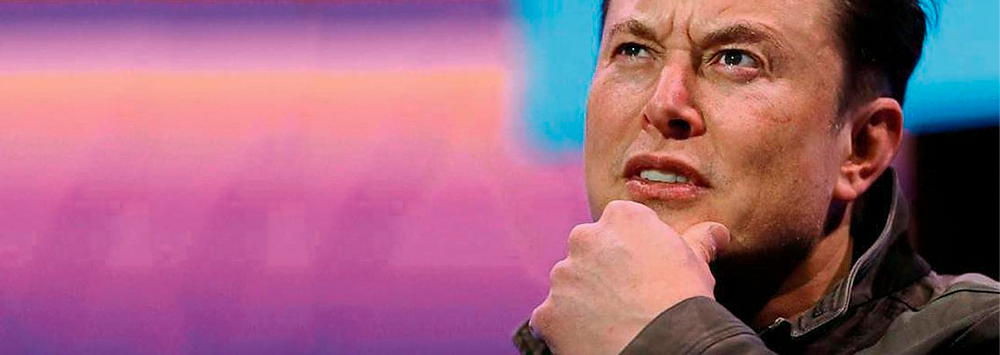
It is a fact that freedom of expression on the network is compromised. Even Elon Musk asked his millions of Twitter followers their opinion, questioning from within, the respect for diversity that social networks are proclaiming. A few days before announcing that he had acquired almost 10% of the company, the billionaire conducted a survey in which he specifically asked whether Twitter rigorously upheld freedom of expression as an essential element in the functioning of democracy. Seventy percent of the more than 2 million people who participated answered no.
Musk has made headlines around the world regarding his troubled relationship with Bill Gates, whom he accuses, among other things, of maintaining a hypocritical position on climate change by not backing Tesla.
He has not been satisfied however, with being part of Twitter and has just acquired the microblogging network in its entirety for a value of 44,000 million dollars. The deal is a golden opportunity to demonstrate whether it will implement the new features it has been responsible for announcing on its very own account over the past few months: elimination of bots, edit button, human authentication, etc. We'll see if such a concentration of power will be used to enact true humanism. After closing the deal, the world's richest man declared, "I hope even my biggest detractors stay on Twitter, because that's what free speech is all about." The tycoon in fact, defined himself as an "absolutist" of free speech and spoke out against the blocking of Russian news sources, in the wake of making his Starlink satellite internet service available to Ukraine.
Musk has not stood idly by in the face of the globalist discourse that decides what is information and what is "disinformation". Using his privileged position, he has taken ownership away from them in an unprecedented anti-censorship maneuver.
Perhaps this is the beginning of the paradigm shift we need to conquer true independence. Democratize through collective ownership, distribute and humanize technology. To escape censorship, projects such as the Brave browser or the social network Truth had appeared, promoted by Donald Trump and which have been experiencing real expansion problems lately, but which were a blow to the table for, as the former president of the United States literally said, "the tyranny of the big tech companies". Attempts to break through the iron shell of mainstream thinking.
The Internet is also undergoing a new metamorphosis that could open up new horizons: Web 3.0. A decentralized, more intelligent framework that connects with people's real interests and involves them creatively, in close collaboration with machines. Web 3.0 will not necessarily require mobiles and computers, but will be accessible in every corner through new devices. It will blur the line between the digital and physical worlds, managing large amounts of data to turn them into real and useful applications for the user. Navigation will be more personal, respectful, and productive. This new space, also known as the semantic web, will make the search for information intuitive and linked to natural human communication. We however we will need all this technology to belong to people, or they and their identities will in reality be owned by the globalist oligarchy.
As Elon Musk has shown, humanity needs to take ownership of technology. Not only do we need distributed technology, but ownership of that distributed technology. When I buy a laptop or a cell phone, I must become a shareholder of that company, and as a customer have the same or many more rights than an investor. Only in this way will we escape the bondage of Rothchild, Gates, Rockefeller and all the slave-owning elite: current owners of the technology on which blockchain is currently based and of the equipment in which a technology that is sold to us as salvation, but will only mean "freedom" when distributed.
Technology, especially in those aspects concerning identity, deserves a spotlight of attention that can help us weave humane and responsible relationships; that can make us raise our heads and realize we have more power than we think. We need to reclaim ownership of technology and distribute it. Let's take inspiration from Elon Musk, collectively.

